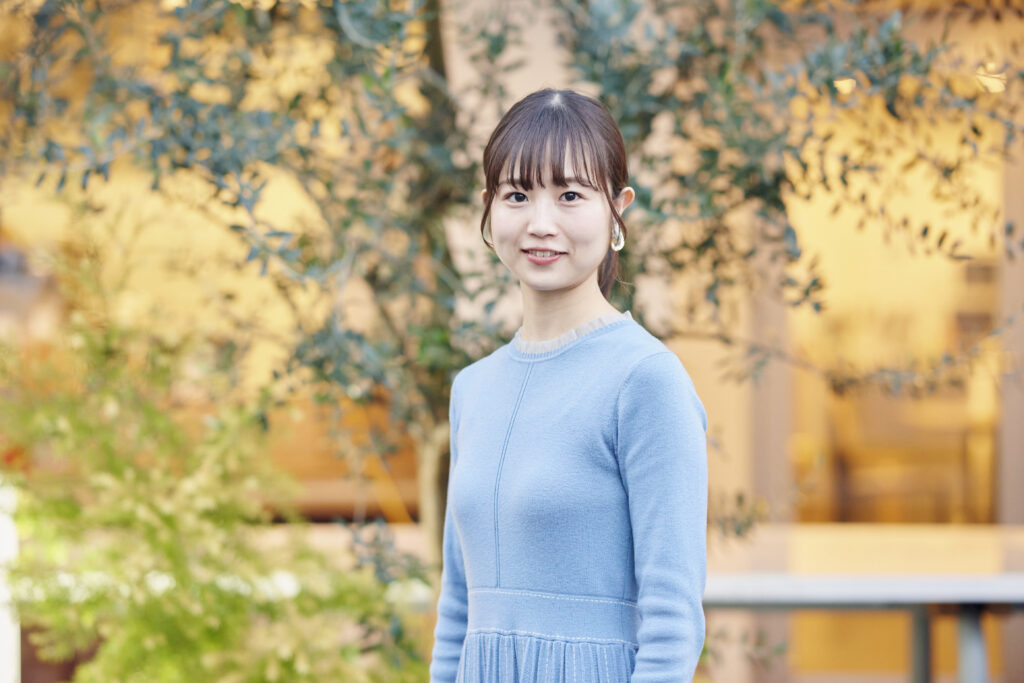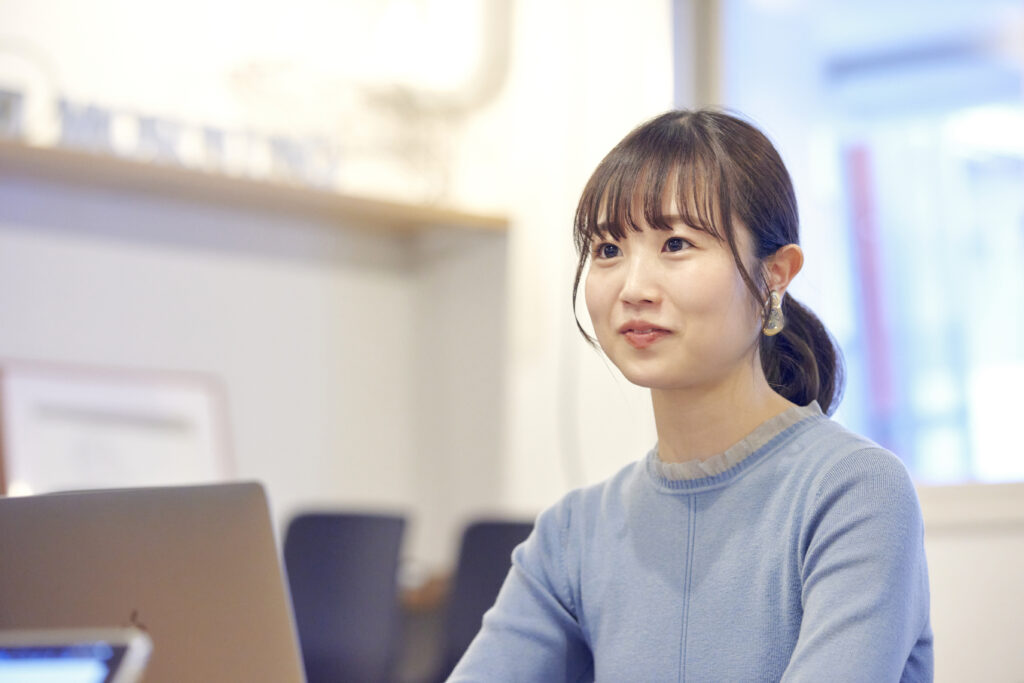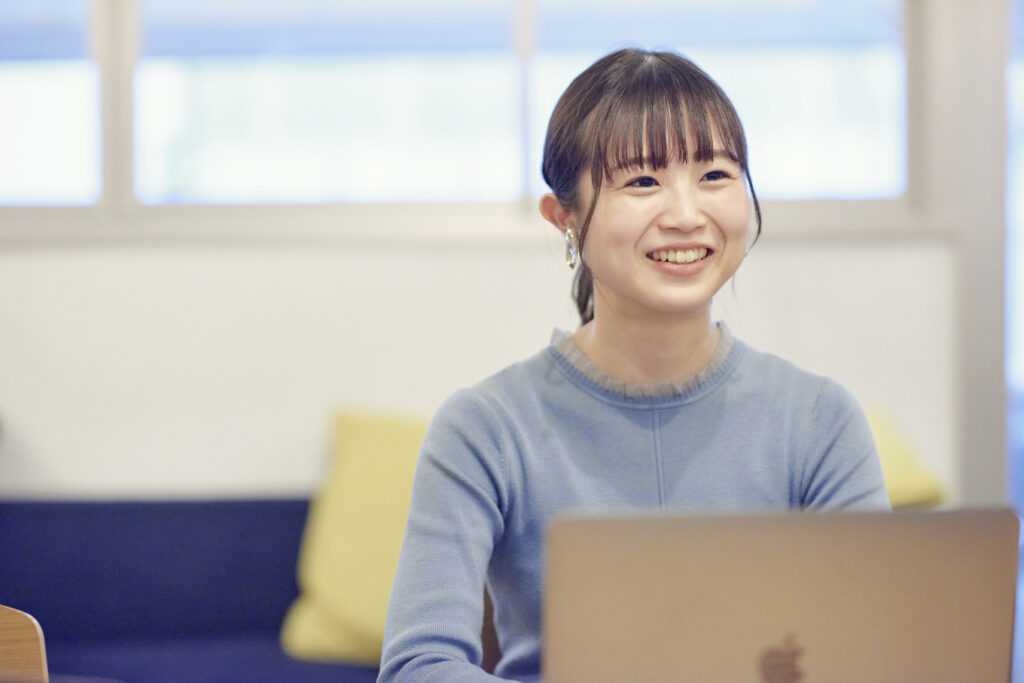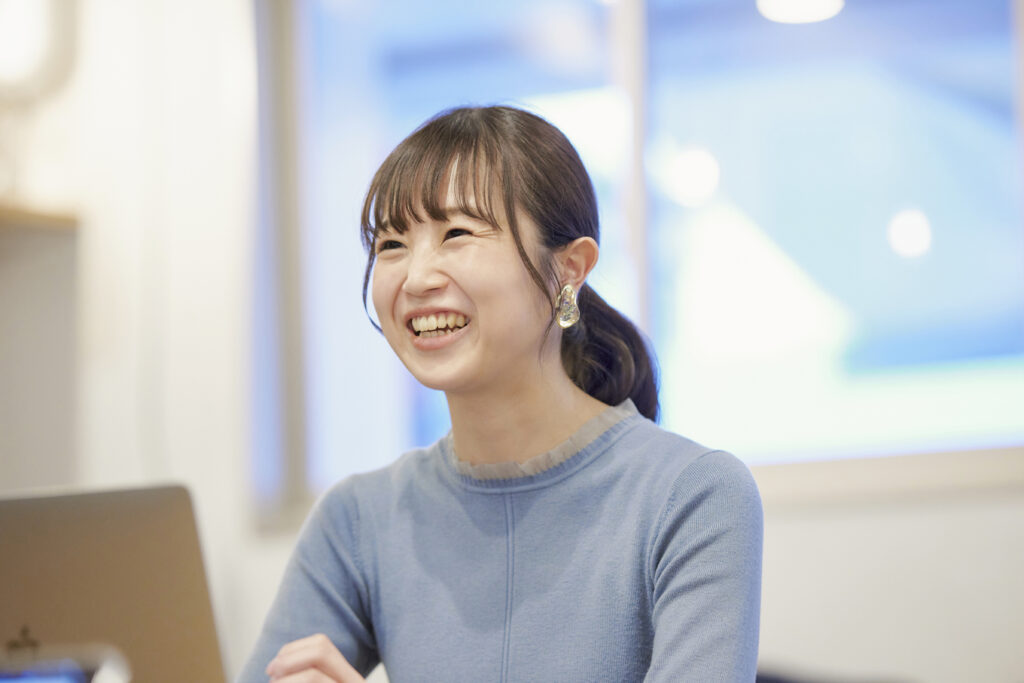In recent years, female entrepreneurs have received more and more media coverage. But the fact that “women” is deliberately added to the phrase “female entrepreneurs” reflects the current situation: Women are still rare amongst entrepreneurs and executives. According to Teikoku Databank’s “National Female President Analysis Survey (2020),” only 8% of Japanese companies had female presidents, a figure that remained unchanged from the previous year.
In this context, the venture capital (VC) firm ANRI stepped into the spotlight last November when it announced its plan to increase the percentage of companies represented by women to at least 20% of all investments in its fourth fund. Up until this point, the startup industry has been overwhelmingly dominated by men, with the boys’ club aspect of the industry seen as problematic.
Why are there so few female entrepreneurs, and what kind of changes need to happen in the industry to increase the number of women? We asked Senior Associate Nina Ehara, who is in charge of the D&I project at ANRI, including Blast Inc., the company behind Nagi.
“Feminism isn’t only a woman’s issue——it’s everyone’s issue.”
――Why did you want to become a venture capitalist in the first place?
Nina Ehara: I originally wanted to become an entrepreneur. From high school, I lived in America for four years, and after returning to Japan, I enrolled in the Faculty of Social Sciences at Hitotsubashi University. I learned about the startup industry for the first time at a G1 college* event I attended in my first year of university. From there, I started spending more time in communities like Hive Shibuya, an entrepreneur co-working space, and I was inspired by the people there.
*An event for university/graduate school students hosted by the Globis School of Management.
――What kind of entrepreneurs were there at the time?
Nina: There was the team from NYAGO, an anonymous chat application that had been the talk of the town in 2018. I was shocked to see that people who I knew, who were close to me in age, had started a social phenomenon. I was aspiring to become an entrepreneur because I wanted to make an impact on society too, but I couldn’t find a business idea that felt right.
From there, in my second year of university, I started interning at ANRI. I’d figured that the experience might come in handy when I started a business someday, but as I connected with all kinds of entrepreneurs as a community manager and saw the work of venture capitalists, I was drawn to the passion behind creating something from nothing. When I talked to the founder, Samata [Anri], about wanting to become a venture capitalist, he said, “Why don’t you try meeting a lot of entrepreneurs and talking to them first?”
――So you started considering investments when you were an intern. How about after that?
Nina: For half a year, I met a lot of entrepreneurs and did something like investment consideration. After that half-year, I found a company I wanted to invest in, so that’s when I became a full-time employee at ANRI.
――Were you already aware of gender issues at that time?
Nina: I’d originally entered Hitotsubashi University to study gender. When I was in high school, I was surprised by the fact that one of my male teachers was a feminist. Up until then, I’d felt reluctant to advocate for women’s rights because it felt like I was only advocating for my own rights. But that teacher made me realize that feminism isn’t only a women’s issue——it’s everyone’s issue.
“Those events don’t have a welcoming atmosphere.” The truth about the barrier that women feel.
――I heard that ANRI’s target investment ratio for female entrepreneurs originally came from you. How did you become aware of the issues related to gender in the startup world?
Nina: At ANRI, we hold business consultation sessions for entrepreneurs called the D&I (Diversity & Inclusion) Office Hour. Within diversity, we mainly focus on gender, and we invite female entrepreneurs or entrepreneurs developing services for women to participate. We deliberately say “women” here. Originally, we’d been holding these events for several years, but there weren’t many women participants. When I asked why, I was told, “Those events don’t have a welcoming atmosphere for women,” which was an aha moment for me.
――Why did women feel like they weren’t welcome?
Nina: I think people in the startup industry are good people, so they’re not excluding women because they want to discriminate against them. But there are times when I’ve felt self-conscious at drinking parties with men, wondering if I should be there, and on the flip side, there are times when men are treading carefully around me. When that happens, you get left out of the conversation, so there are times when you can’t access small pieces of information. It’s not uncommon for spaces to be male-dominated and have a boys’ club atmosphere, which makes it difficult for women to proactively participate. I feel that these small things add up to create a large gap.
――So are women unable to access certain information and such because they’re a minority in this industry?
Nina: For example, there’s already an information gap even at the level of financing wisdom or what to put in pitch decks. There’s no clear data on what causes this information gap, but it tends to be easier for men to meet other entrepreneurs or mentors of the same gender. The psychological barrier born from gender is created by the reluctance or consideration that takes place precisely because women are very much a minority.
There aren’t many women entrepreneurs, so even if there are connections here and there, it’s difficult to turn that into a network. Mentors are hard to find and the people women can talk to are limited. There are a lot of things you don’t know right away as an entrepreneur, and every day, new problems and challenges pop up. Not having someone to talk to is stressful, and it’s an issue that affects whether your business can survive. That’s exactly why as a venture capitalist, I tell entrepreneurs that I want them to think of me as a business partner and come to me with concerns.
――On top of the information gap, it seems like there are a lot of challenges for women as minorities.
Nina: The investor side is also predominantly male. So when women pitch to VCs, if they’re pitching to all men or there are only a few women, they aren’t guaranteed a psychological sense of security. When it comes to explaining the details of the business, if it’s a female-specific issue like menstruation, it’s difficult to explain. I think on the VC side, sometimes they’re afraid to ask questions for fear of sexual harassment, so they might be overly cautious.
Unconscious bias is also a big issue. Even with the same negative traits, I feel that women might receive harsher reactions. For example, regardless of whether you’re a man or woman, I think acting on emotion is something that depends on the individual, but it’s easy for people to make the association that women = emotional. More blatant discrimination includes seeking out men because they’re assumed to be better with numbers or childbirth negatively affecting a female entrepreneurs’ evaluation.
――Are the issues of diversity/gender in the startup industry limited to Japan?
Nina: Actually, even if you look at America, which is a startup powerhouse, gender equality hasn’t progressed that much in terms of the numbers. But they’re fast with taking action, like starting up funds geared towards women or other minorities. Still, the ratio of women and the amount of investment in women haven’t increased. The reality is that even if you look at it globally, there aren’t many success stories.
Is affirmative action just “inflating the numbers”?
――If you increase the percentage of investment in female entrepreneurs, it’ll ultimately result in more female entrepreneurs. What kind of changes will come about from increasing this number?
Nina: The startup industry tends to be a meritocracy. So within that context, sometimes affirmative action is seen as “inflating the numbers.” Regarding ANRI’s actions, we’ve been told, “You shouldn’t only care about the numbers.” or “You should just invest in the best people.” In reality, the existing rules are patriarchal, and the field itself isn’t fair for women. I don’t think you can measure wins or losses within that framework.
These aren’t the people who invest in our fund, but some people say, “Funds are about returns, not concerns about gender and diversity.”
If a community doesn’t share the value that having people from all kinds of backgrounds is an advantage for an organization, it won’t win the admiration of the best people. And no one wants to join a community that doesn’t respect their opinions or existence. For the startup industry, which requires the best of the best, I think the lack of diverse perspectives is a disadvantage.
――Why hasn’t there been much progress in changing attitudes towards diversity and gender equality?
Nina: There have been small steps in the startup industry, but I feel that the pace is slow. One reason is that since it’s an overwhelmingly male-dominated industry, there aren’t many opportunities to notice the disadvantages from the perspective of a minority.
The startup industry has a lot of people who genuinely want to solve social issues and do good, and there are actually a lot of good people. But on the flip side, some people think, “I don’t discriminate” or “My intention isn’t to discriminate, and I respect women.” That thought itself is great, but the gender gap is a structural issue. It’s something we should change by thinking not on an individual level, but a broader level.
――The target 20% investment rate for female entrepreneurs is a good start, precisely because it’s an industry that won’t change unless it raises awareness.
Nina: Our diversity efforts aren’t only for female entrepreneurs, but are also incorporated into our hiring practices and scholarships for students doing basic research. When it comes to diversity, gender is a top priority issue, so that’s where we’re starting at the moment. Eventually, I hope to work on this from various perspectives, like religion, disabilities, and LGBTQ+.
Not all female entrepreneurs are “career women.”
――There’s a saying that “you can’t be what you can’t see.” It must be an issue for female entrepreneurs that there’s a lack of role models of the same gender, right?
Nina: Back in the day, there were two choices for women role models: women executives who emphasized their gender or women executives who disregarded their gender. In an environment where only “career women” types who live for work can make it, I’m concerned that it’ll become the norm for people to think of women business owners as career women.
So in that case, people who don’t fit into the “career women” category become people who don’t fit the image of a business owner. Women may try to fit the norm of business owners as a survival strategy, even though that may not be their true selves.
――It’s about adopting masculine qualities and adapting to a patriarchal society, right?
Nina: For people who have worked hard to conform to a patriarchal society, they might feel like movements for diversity are a personal slight. In some cases, resistance may arise in response to changing the rules that they’ve struggled with until this point. I think that kind of thing can be a cause of the backlash from women when it comes to the discussion of gender.
――Who is your personal role model?
Nina: He’s not a “role model” exactly, but someone at work who I admire is Anri Samata. Bad things are constantly happening to startups. (laughs) There are problems like you wouldn’t believe every day, but Mr. Samata seems to really enjoy it all, working side-by-side with business owners as if he’s a co-founder to overcome problems. I admire that kind of attitude.
――What are your goals for the future?
Nina: I think that the number of women should increase among investors and entrepreneurs alike, so I want to do all kinds of things to achieve that. I can’t demonstrate the full extent of my values while only working within ANRI, so I’d like to tackle the issue with the people creating the ecosystem.
Personally, I’d like to become a Reiwa role model. Until now, female role models were often distant, career women types. I want to take care of my private life, and I think there’s more to life than work. I think there are a lot of young people today who think that way, so I’d like to become a role model they can relate to.
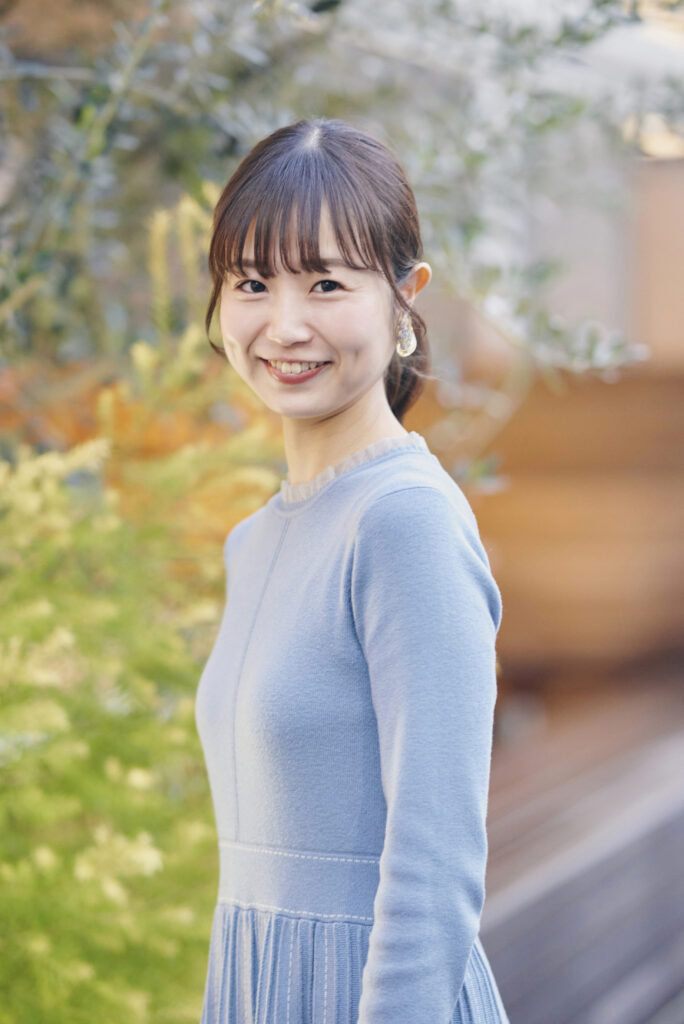
Nina Ehara
Nina Ehara was born in 1997 in Kumamoto Prefecture. She is a graduate of the Hitotsubashi University Department of Sociology. At age 15, she moved to North Carolina, where she spent four years in high school and college. Starting from when she was in university, she was involved in PR for a startup from 2018, and she became involved in ANRI from January 2019. Today, she’s mainly responsible for investing in B2C services in the seed stage and services geared towards women. As an initiative beyond the fund, she regularly hosts D&I Office Hour, an initiative aiming to promote diversity and inclusion within the startup industry.
Twitter:@nina_ehara
Photogaraphy Yohei Kichiraku
Translation Aya Apton

